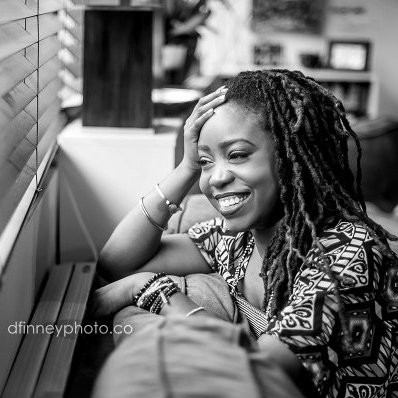
Broccoli City is on a mission to turn hip-hop lovers into tree-huggers. The wildly successful social enterprise is leveraging its community of over 20,000 urban millennials around the world to promote healthy eating, environmental sustainability and civic engagement.
Its annual festival, which takes place on April 30 of this year, features live performances by Future and Jhene Aiko, as well as art, yoga, healthy, organic and vegan food, and eco-friendly vendors. However, the most impressive thing that Broccoli City offers is an opportunity for young people to engage with their communities through sustainable, high-impact, civic engagement.
Through the Power of One campaign, festival attendees are given the opportunity to work with local organizations, city agencies and local/national brands to help build, feed, clean up, grow and refresh their communities. Those who fully participate in a community service action are awarded a free pass to attend the festival.
“It’s really about building social capital and inspiring people to be more active in their communities,” explained Darryl Perkins (above), Broccoli City’s director of community engagement. “We are leveraging what we do with the festival to build a healthier environment and healthier people."
He continued: "We are all sharing this one little blue planet. If we don’t take care of it, in a few generations our grandchildren won’t have a place to live.”
The trick is in making sustainability cool, or as I like to say, “making green the new gangsta." “We have to make it seem like everybody is doing it," Perkins told 3p. “We have to make it cool to be active and engaged, to be conscious about our environment and what we put into our bodies. That’s the way we shift the culture. We have to set the trend.”
Through the Power of One, Broccoli City will activate more than 1,000 volunteers before this year's festival. They're building community gardens, planting trees, cleaning up public spaces, preparing meals for the homeless and much more. “We’ve created a premium for doing work in the community,” Perkins told us. “Of course, the incentive helps, but beyond that people want to be engaged and do stuff.”
The focus is on high-impact, low-infrastructure programs that can move a lot of people quickly and efficiently. For example, the organization partnered with #HashtagLunchBag to prepare and distribute over 1,000 meals to hungry and homeless people in Washington D.C.
Volunteers also worked with the D.C. Central Kitchen to transform over 1,000 pounds of donated food into 1,500 balanced meals. The meals were then delivered to homeless shelters, transitional homes and nonprofit organizations, saving these organizations money and nourishing people who need it the most.
Volunteers worked alongside Casey Trees to restore Washington D.C’s famous tree canopy. They also banned together to clean up and refresh local community spaces and prepare community gardens for spring planting. Volunteers helped create healthy shorelines and trails by removing litter, debris and trash from local lands along the Anacostia River. They also participated in a public art project at a local park.
All volunteer events reach capacity within hours of being posted on the Broccoli City website and are met with “hella enthusiasm,” said Perkins. “We’re bringing a fresh, new energy into these spaces and encouraging people to take a more active role in their communities.”
Perkins attributes a great deal of Broccoli City’s success to its innovative business model. As a social enterprise, the team is able to raise enough money during the annual festival to sustain them throughout the year.
“Our generation is dope because we’re breaking the mold of traditional nonprofits,” he explained. “The old way of doing things is no longer effective. Nonprofits spend so much time trying to get funding, and then you can’t do the work you need to do. We want to create new models that spread like wildfire, so people don’t have to choose between doing good work and making money.”
The Broccoli City festival, which started as a yearly Earth Day event, has grown exponentially over the last four years. This year, it's expecting a crowd of up to 12,000. In addition to the festival, the organization has a number of ongoing programs like Healthy Hoods, which provides weekly workshops on healthy living to families in need, and BrocBox, a hydroponic indoor-gardening system housed in repurposed shipping containers.
“The festival is just one piece of what we do,” Perkins told us. When it’s all said and done, it’s just about discovering creative ways to empower young people to make a positive impact within their own lives and their communities. In this case, hip-hop culture is simply the tool.
Image credits: Broccoli City

Joi M. Sears is the Founder and Creative Director of Free People International, a social enterprise which specializes in offering creative solutions to the world's biggest social, environmental and economic challenges through the arts, design thinking and social innovation.














